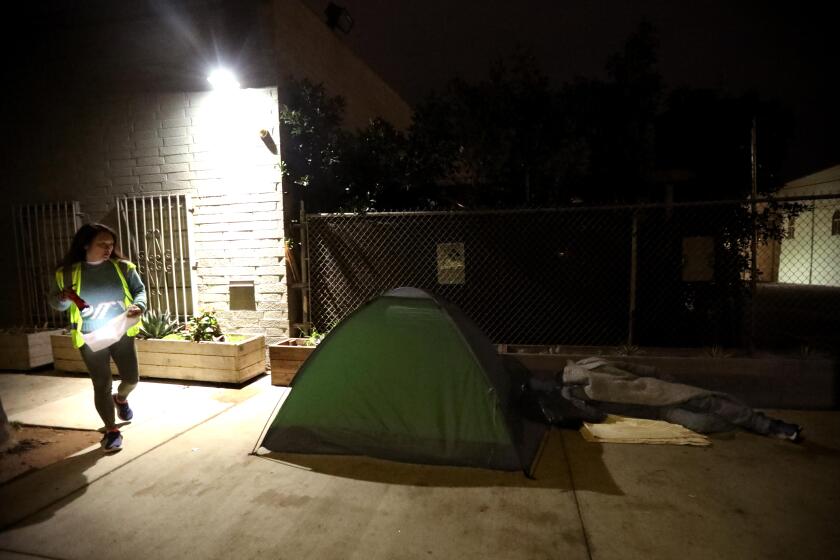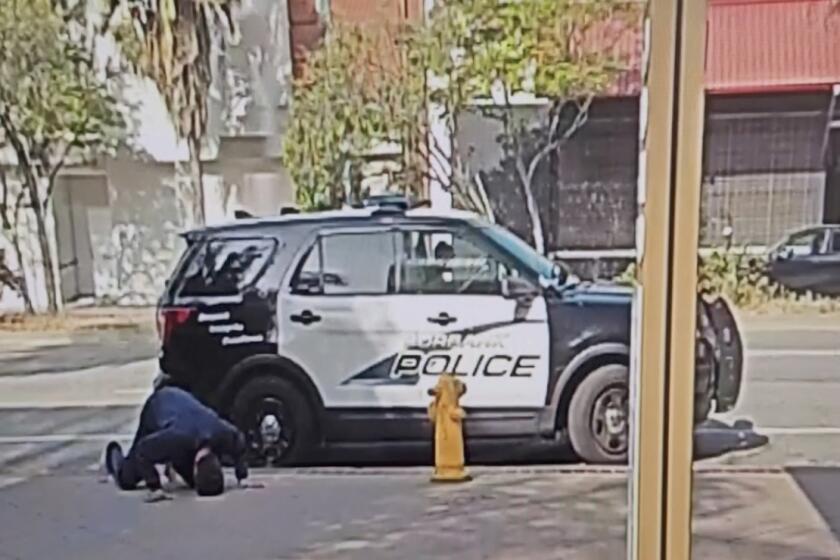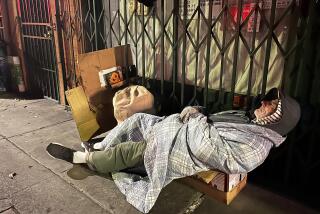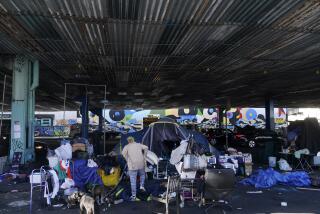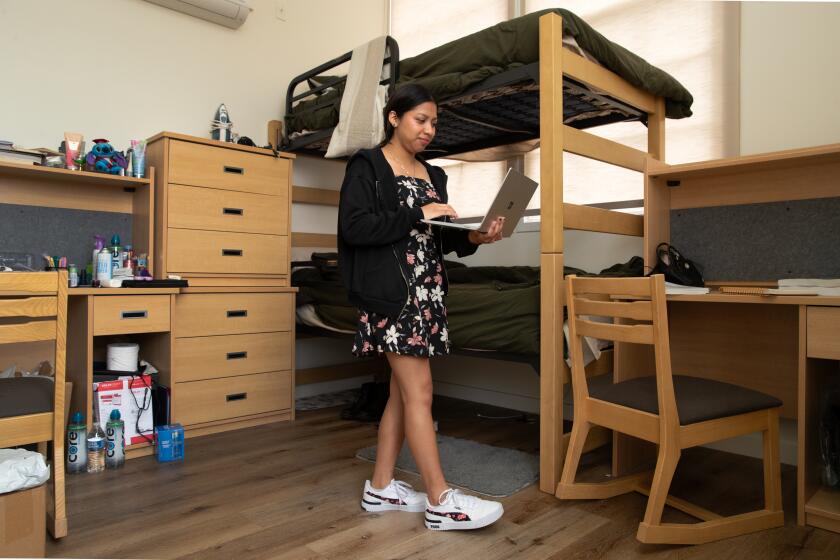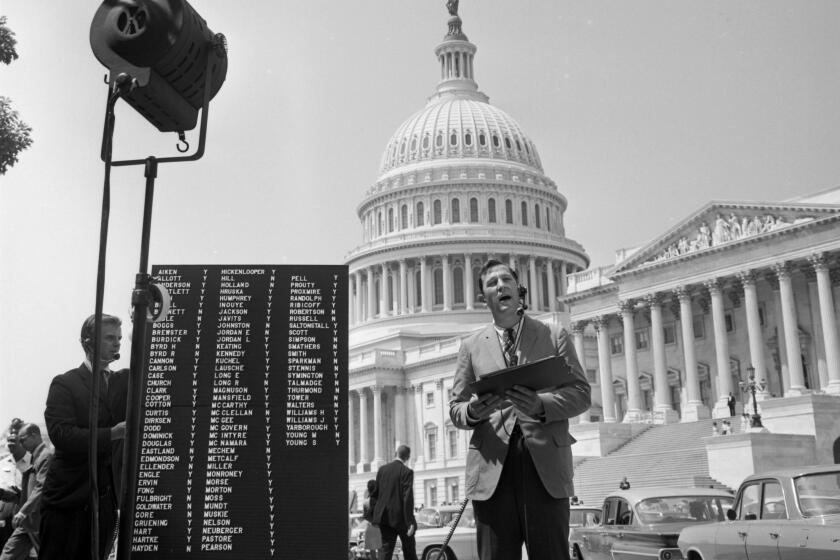Editorial: Cities in L.A. County shouldn’t race to criminalize homelessness after Grants Pass ruling

Within hours of the Supreme Court’s ruling in Grants Pass vs. Johnson last week allowing cities and counties to criminalize homelessness, Los Angeles City Councilmember Traci Park co-authored a motion asking city officials to examine existing anti-camping restrictions in L.A. and those in the other 87 cities in the county.
It’s fine to review city laws, but Park revealed the intention behind the hasty request on her council website: “If we allow people to camp wherever they want, for as long as they want, regardless of whether they’ve been offered services or a place to go, we are likely to see other cities, other regions, and other states pushing their homeless problems right into LA.”
Using that information as a blueprint to ramp up enforcement, as Park seems to want, would take the city down the wrong path. The aftermath of this terrible ruling can’t be a race to the bottom as each city puts in place stronger anti-camping laws in a battle to keep one jurisdiction from pushing their homeless residents into another.
Supreme Court ruling in Grants Pass case allows cities to criminalize people for being poor. How does it solve homelessness by fining or jailing people for sleeping outside if they have no choice?
The ruling in Grants Pass vs. Johnson allows police to fine and jail homeless people living and sleeping outside, even when there is no available shelter for them. But no one should view the outcome of the case as a signal to pass new anti-camping laws or double down on enforcement of existing ones. Fining or jailing people for sleeping on sidewalks when they have nowhere else to go or shooing them from one street to another does not solve homelessness. Only available affordable housing and supportive services can end the crisis.
That message is not just for members of the Los Angeles City Council, but for every other elected official in the county.
New homeless numbers show a slight decrease in L.A.’s homeless population. The takeaway: Inside Safe and other efforts to house people are working.
Los Angeles officials have already prohibited camping at hundreds of sites in the city. All schools and daycare centers, for example, are considered no-camping sites. And additional locations have been added by individual council members. In many cases, when a sidewalk is being cleared, people are first offered shelter. If they refuse and are still there when the anti-camping designation is enforced, they can be fined and shooed away from those sites. We don’t want the city to become one entire anti-camping zone.
Thankfully, Mayor Karen Bass, who denounced the Grants Pass decision, has taken the position that we cannot arrest our way out of the homeless crisis. She has made a commitment to increase temporary housing and speed up the construction of affordable housing in L.A., which is desperately lacking.
The increase in available city-financed permanent housing for homeless people and housing vouchers has paid off in the first drop in the city’s homeless population since 2018. The number of homeless people in the city decreased 2.2% since 2023, according to the January 2024 point-in-time count. Bass’ Inside Safe program, which temporarily houses people in motels and hotels, along with an increase in shelter beds, contributed to a 10.4% drop in unsheltered homelessness and a dramatic 17.7% increase in the sheltered population.
Dumping homeless people is despicable, but in a sense, every homeless person has been dumped on the streets.
But the city of Los Angeles can’t be the lone outpost of rational ideas in Los Angeles County when it comes to housing people who have no housing. The other 87 cities in the county should not see the Grants Pass decision as an opportunity to pass sweeping new laws to ban homelessness and push them into neighboring communities — as they have been known to do. Burbank police officers were recently caught on security camera video dropping off a homeless man in North Hollywood, in front of L.A. Council President Paul Krekorian’s district office.
Nor should elected officials in Los Angeles be passing new anti-camping laws as a hedge against other cities passing new laws.
What they should be doing is focusing on building more housing for their own homeless residents and working with the county to coordinate homeless services and housing. L.A. County Supervisor Lindsey Horvath, who chairs the Los Angeles Homeless Services Authority Commission, believes the Board of Supervisors can help.
She said she wants to meet with city officials, as she has in the past, and let them know how to access county services for their homeless populations and discuss ways they can increase available housing. “When people are frustrated, they look to these short term actions to address the problem,” she said of enforcement. Horvath, who called the Supreme Court decision “unconscionable,” and the other L.A. supervisors should convene city officials to strategize policies that work and emphasize that enforcement is not one of them.
Being homeless is not a crime. For most, it’s a result of a lack of affordable housing so severe that thousands of people simply can’t afford not to be homeless. If cities really want to solve homelessness, it’s imperative they make way for more housing for homeless people — not simply push them to yet another sidewalk or another city.
More to Read
A cure for the common opinion
Get thought-provoking perspectives with our weekly newsletter.
You may occasionally receive promotional content from the Los Angeles Times.

